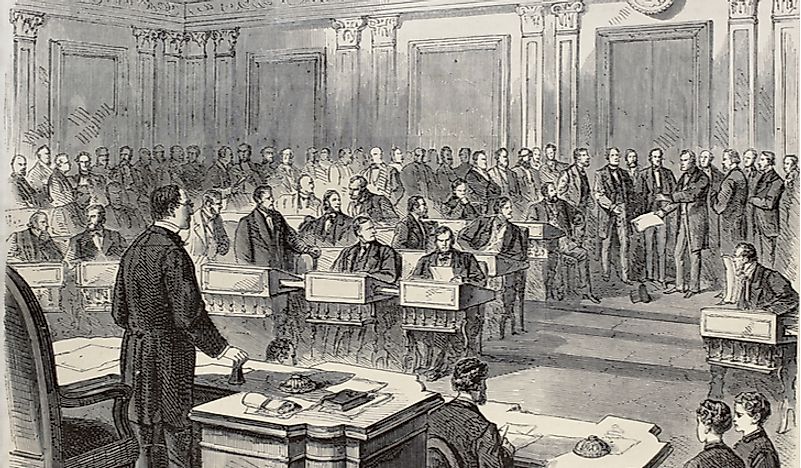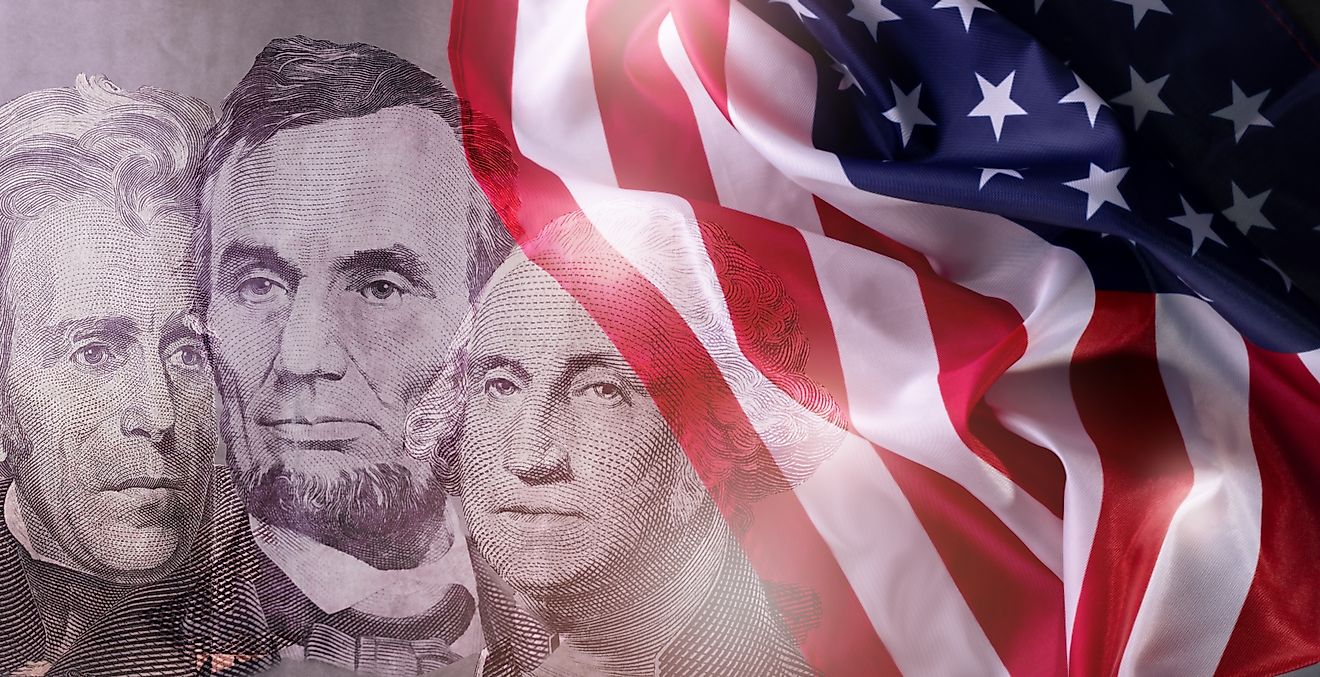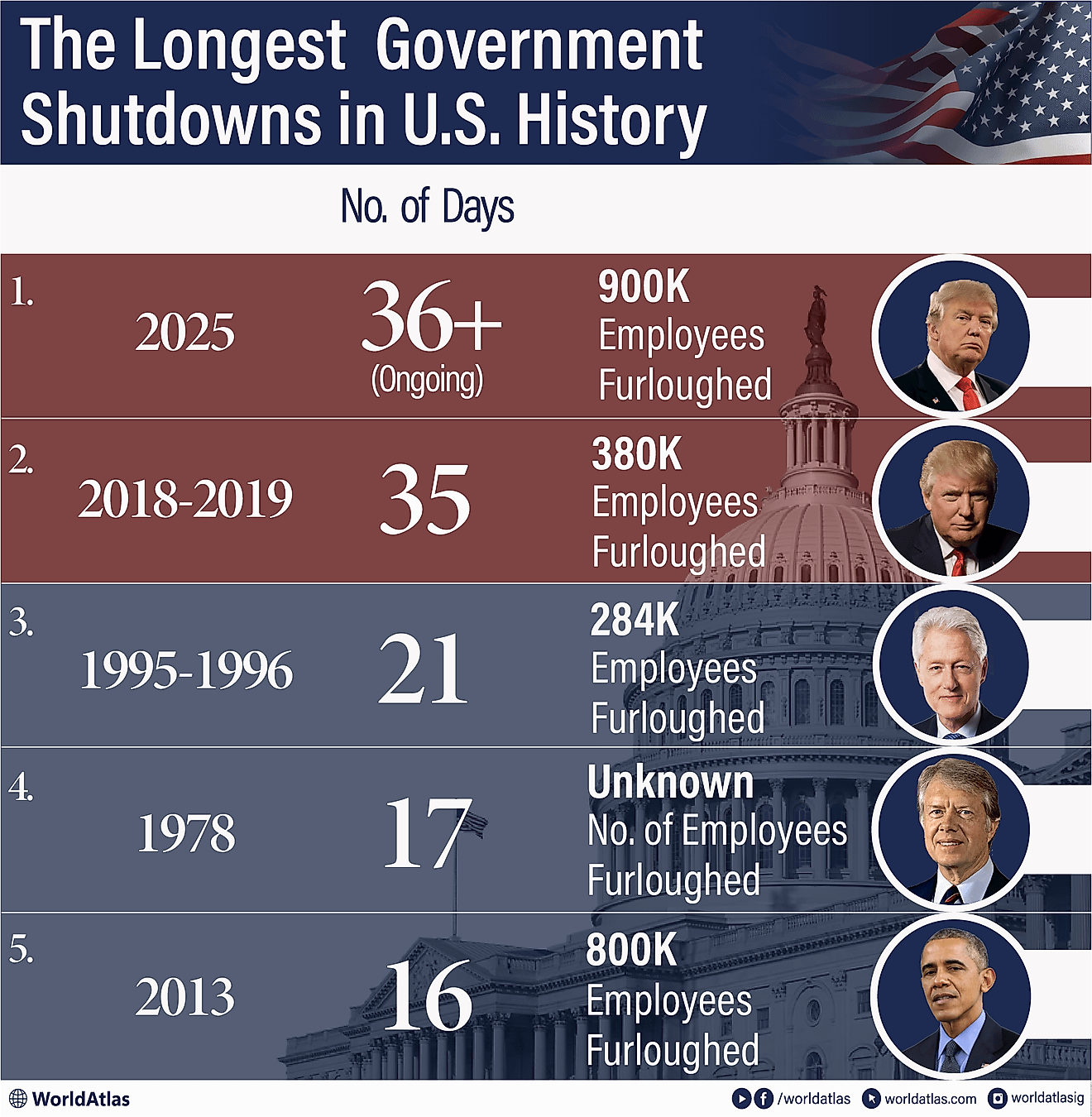US Presidents That Have Been Impeached

What Is Impeachment?
In the US, impeachment can occur when Congress brings charges against a public official for alleged crimes committed while in office. In some instances, charges have been brought against a government official for crimes committed before holding office. In non-governmental court proceedings, an impeachment is like an indictment. In the US, the House of Representatives impeaches and the Senate carries out the trial. Conviction requires a two-thirds vote. Impeachment proceedings generally lead to removal from office, but not in all cases. The US Congress has brought impeachment charges against several former Presidents. This article takes a closer look at this governmental practice.
On What Grounds Are US Officials Impeached?
The US Constitution lays out the guidelines for impeachment. It says that the President, Vice President, or any other public officer may be removed from office if impeached and convicted of certain crimes. These crimes include treason, bribery, perjury under oath, abuse of authority, misappropriation of resources, and misconduct (among others).
US Presidents Who Were Impeached
On several occasions, the impeachment process has been brought against US federal officials. In total, 19 federal officials have been successfully impeached. Of these, only two were Presidents: Andrew Johnson and Bill Clinton. A movement was made to impeach ex-President Richard Nixon over the Watergate scandal, but he resigned from office before facing trial.
Andrew Johnson
Andrew Johnson was the country's 17th President. The House of Representatives brought several impeachment charges against him, although the principal charge was that he had violated the Tenure of Office Act. The 1867 Tenure of Office Act required that the President obtain consent from the Senate before removing any Cabinet member or federal public official. This Act was specifically for individuals in positions that had previously required the Senate’s approval.
Finding a loophole, Johnson suspended Secretary of War Edward Stanton on August 5, 1867. The Suspension was not covered by the Act. He appointed General Ulysses S. Grant to replace the position left vacant by Stanton. In January of 1868, the Senate passed a resolution stating that Grant’s assignment had not been approved. Grant left office and Stanton returned. The ex-President believed the Act was unconstitutional, ignored Stanton’s return, and appointed a new Secretary of War on February 21, 1868.
A resolution was approved by the House of Representatives to impeach Johnson on charges of high crimes and misdemeanors on February 24. In this resolution, he was charged with 11 crimes. The Senate trial began in March of the same year. For each of the 11 charges, the Senate failed to find him guilty due to a lack of a two-thirds majority vote.
Bill Clinton
The second time Congress initiated an impeachment trial was in 1998 against Bill Clinton, the 42nd President of the US. The House of Representatives brought charges against Clinton for perjury and obstruction of justice. These charges emerged as a result of two events: Paula Jones’ sexual harassment lawsuit and Clinton’s affair with Monica Lewinsky who served as a former White House Intern.
The impeachment charges began with an independent investigation conducted by Ken Starr of the US Office of the Independent Counsel. This investigation looked into the real estate investment case, referred to as the Whitewater Scandal. Starr investigated issues surrounding firing several White House travel agents, corrupt use of FBI files, and the previously mentioned sexual harassment lawsuit. In addition, he investigated e-mails and phone calls between Clinton and Lewinsky. He turned over everything to the US House of Representatives Committee on the Judiciary.
The House of Representative moved to impeach on two charges on December 19, 1998. On January 8, 1999, the Senate trial began. On February 12, the Senate members voted, not reaching the required two-thirds vote for a guilty verdict.
Impeached US Presidents And Other Federal Officials
| Rank | Date of Impeachment | Accused | Office | Accusation(s) |
|---|---|---|---|---|
| 1 | July 7, 1797 | William Blount | United States Senator (Tennessee) | Conspiring with Britain to for capture of Spanish territory |
| 2 | March 2, 1803 | John Pickering | Judge (District of New Hampshire) | Drunkenness and unlawful rulings |
| 3 | March 12, 1804 | Samuel Chase | Associate Justice (Supreme Court of the United States) | Promotion go s partisan political attitude and political bias |
| 4 | April 24, 1830 | James H. Peck | Judge (District of Missouri) | Misuse of power |
| 5 | May 6, 1862 | West Hughes Humphreys | Judge (Eastern, Middle, and Western Districts of Tennessee) | Supporting the Confederacy |
| 6 | February 24, 1868 | Andrew Johnson | President of the United States | Tenure of Office Act violation |
| 7 | February 28, 1873 | Mark W. Delahay | Judge (District of Kansas) | Drunkenness |
| 8 | March 2, 1876 | William W. Belknap | United States Secretary of War | Corruption/graft |
| 9 | December 13, 1904 | Charles Swayne | Judge (Northern District of Florida) | Abuse of power, failure to live in his district |
| 10 | July 11, 1912 | Robert Wodrow Archbald | Associate Justice (United States Commerce Court) Judge (Third Circuit Court of Appeals) | Improper acceptance of gifts from litigants and attorneys |
| 11 | April 1, 1926 | George W. English | Judge (Eastern District of Illinois) | Abuse of power |
| 12 | February 24, 1933 | Harold Louderback | Judge (Northern District of California) | Corruption |
| 13 | March 2, 1936 | Halsted L. Ritter | Judge (Southern District of Florida) | Champerty/corruption, evasion of law, practicing law while being a judge |
| 14 | July 22, 1986 | Harry E. Claiborne | Judge (District of Nevada) | Evasion of tax |
| 15 | August 3, 1988 | Alcee Hastings | Judge (Southern District of Florida) | Accepting a bribe, and committing perjury during the resulting investigation |
| 16 | May 10, 1989 | Walter Nixon | Chief Judge (Southern District of Mississippi) | Perjury |
| 17 | December 19, 1998 | Bill Clinton | President of the United States | Perjury and obstruction of justice |
| 18 | June 19, 2009 | Samuel B. Kent | Judge (Southern District of Texas) | Sexual assault, and obstruction of justice during the investigation of the charges against him |
| 19 | March 11, 2010 | Thomas Porteous | Judge (Eastern District of Louisiana) | Making false financial disclosures |











